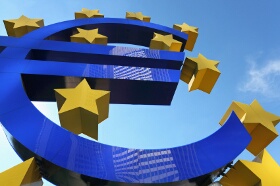
This trading week was a bit uneventful. That was not good for the euro as traders hoped that the European Central Bank would act to support the currency as its President Mario Draghi had promised previously.
The currency was trying to keep its gains from the previous week’s Friday at the start of this week, but for the most part of the week the euro was going down. Spanish yields were rising and nearing the critical 7 percent level. That is the problem with promises that are not delivered: more hopes they spur, more disappointment would follow. Investors did not lose all of their hopes yet, but the ECB and the European leaders should act quickly unless they want to lose the euro.
One of the major events during the week was the release of China’s trade balance report that showed the significant drop of the country’s exports. It was not a surprise, considering the fragility of global economic growth these days. China’s inflation slowed, adding to signs that the nation’s economic growth is decelerating. The reaction of markets to the negative news was rather interesting as risk appetite strengthened amid speculations that the slowing growth would spur the Chinese officials to stimulate the economy. The positive market sentiment bolstered commodity currencies, including the Australian and Canadian dollars, which reached new highs versus the euro.
EUR/USD was down from 1.2393 to 1.2289 and EUR/JPY fell from 97.41 to 96.15 this week. EUR/AUD slipped from 1.1714 to 1.1615 and the weekly low of 1.1607 was the lowest in the history. EUR/CAD slumped from 1.2409 to 1.2175, also touching the record low (1.2169) during the week.
If you have any questions, comments or opinions regarding the Euro,
feel free to post them using the commentary form below.